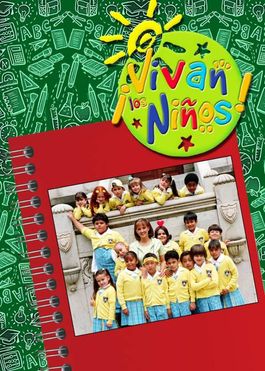
Itatí Guadalupe Cantoral Zucchi is a Mexican actress, singer, dancer, and producer. She is best known for her roles as Soraya Montenegro in María la del Barrio (1995) and Alejandra Álvarez del Castillo Fernández "La Licenciada" in Hasta que el dinero nos separe (2009), both telenovelas produced by Televisa.

Bibi Gaytán is a Mexican singer and actress. Since she was born, she has lived in Villahermosa, Tabasco and she considers herself "Tabasqueña".
Sólo Para Mujeres is a Mexican theatre play. It has been running for about a decade. This show was inspired by the 1997 British film Full Monty.
Alcanzar una estrella II is a Mexican telenovela produced by Luis de Llano Macedo for Televisa in 1991. It is the sequel to Alcanzar una estrella.

Amigas y rivales is a Mexican juvenile telenovela produced by Emilio Larrosa for Televisa in 2001. On Monday, February 26, 2001, Canal de las Estrellas started broadcasting Amigas y rivales weekdays at 7:00pm, replacing Primer amor, a mil por hora. The last episode was broadcast on Friday, November 9, 2001 with El juego de la vida replacing it the following Monday.

¡Vivan los niños! is a Mexican telenovela produced by Nicandro Díaz González for Televisa. It aired on Canal de las Estrellas from July 15, 2002, to March 17, 2003. It's an adaptation of the 1983 Argentinean telenovela Señorita maestra.

The 7th Annual Latin Grammy Awards were held for the first time in New York City, NY. The awards show was held at Madison Square Garden on Thursday, November 2, 2006. Shakira was the big winner winning Album of the Year, one of four awards that she won. She is the first female artist to win Record of the Year, Album of the Year, and Song of the Year.
Camila is a Mexican telenovela produced by Angelli Nesma Medina for Televisa in 1998. The story is a remake of 1978 Mexican telenovela Viviana. It aired on Canal de Las Estrellas from September 14, 1998 to January 15, 1999.

Sueños y Caramelos is a Mexican telenovela produced by Carlos Moreno Laguillo for Televisa in 2005. It is a remake of La Pícara Soñadora.

The 11th Pan American Games were held in Havana, Cuba from August 2 to August 18, 1991.
La antorcha encendida is a Mexican telenovela produced by Ernesto Alonso and Carlos Sotomayor for Televisa in 1996. It was the last historical telenovela produced by Televisa. The plot tells the Independence of Mexico, with an emphasis on historical accuracy. It was written by Fausto Zeron Medina in collaboration with Liliana Abud. It premiered on Canal de las Estrellas on May 6, 1996, and ended on November 15, 1996.

Amy, la niña de la mochila azul is a Mexican telenovela produced by Televisa in 2004. Starring Danna Paola, Nora Salinas and Eduardo Capetillo, while Pedro Armendáriz Jr. and Tatiana star as co-protagonists with Alejandro Tommasi, Lorena Herrera, Alejandra Meyer, Manuel Landeta and Alejandra Procuna as antagonists.

El juego de la vida is a Mexican telenovela produced by Roberto Gómez Fernández and Giselle Gonález Salgado for Televisa. It premiered on November 12, 2001 and ended on June 28, 2002.
Locura de amor is a Mexican telenovela produced by Roberto Gómez Fernández for Televisa that premiered on May 1, 2000 and ended on October 6, 2000. The series is a remake of the 1988 telenovela Dulce Desafío. It stars Juan Soler and Adriana Nieto, Laisha Wilkins, Juan Peláez and Gabriela Platas.
Te amo is a Mexican telenovela produced by Guillermo Diazayas and directed by Enrique Segoviano for Televisa in 1984. It starred Lourdes Munguía, José Roberto, Aarón Hernán, María Rubio and Norma Lazareno.
Dos vidas is a Mexican telenovela produced by Eugenio Cobo for Televisa in 1988. It is an original story by Janete Clair, adapted by Jorge Patiño and directed by Benjamín Cann.
Tenías que ser tú is a Mexican telenovela produced by Carlos Téllez for Televisa in 1993.
Una luz en el camino is a Mexican children's telenovela produced by Mapat L. de Zatarain for Televisa in 1998. It is an adaptation of the 1991–1992 Argentinian children's telenovela El árbol azul.









